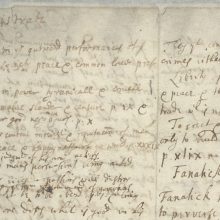
Photo from archive.org
Eusebius as a triumphal optimist. The severity of the threat posed by the demons, along with human frailty, explains why Eusebius could not have envisioned his own time as the… Click to show full abstract
Eusebius as a triumphal optimist. The severity of the threat posed by the demons, along with human frailty, explains why Eusebius could not have envisioned his own time as the definitive realization of God’s kingdom on earth. Even after Constantine’s conversion, historical regression was entirely possible. Enriching her argument is the stress in her final chapter (190–191, 200–201) on the uncertain state of affairs at the end of Constantine’s life when the dogmatic winds threatened to shift under his sons (Eusebius outlived Constantine by two years, and the Life of Constantine was possibly unfinished when Eusebius himself died in 339). To the author’s credit, she seeks to free Eusebius from an older tendency in scholarship to see him anachronistically as heralding the end of history (to borrow Francis Fukuyama’s unfortunate usage), not in an apocalyptic fireball but in the eschatological peace of the Christian Roman Empire. As she realizes, revising such determinism and returning Eusebius to his own time and place is a goal of much current work on a prolific writer who was the leading Christian scholar of his era. She is to be commended for adding a new dimension to this trend by bringing to bear so many of his pronouncements on the enduring strength of the adversarial powers that Eusebius took very seriously indeed. The Demonic in the Political Thought of Eusebius of Caesarea is written in a clear and readable style that is accessible to undergraduates. Its rather narrow historiographical focus, and Oxford’s price, may make it more suitable for research collections.
Journal Title: Church History
Year Published: 2018
Link to full text (if available)
Share on Social Media: Sign Up to like & get
recommendations!